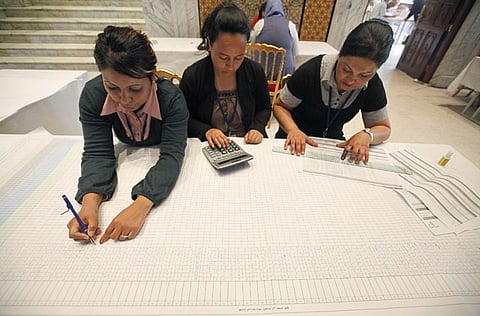Tunisia's new challenges
The opening of the country's first elected assembly is just part of the work needed to truly entrench democracy

There is much to be done to entrench democracy in Tunisia — and each of us must be ready to face the challenge
Just over 10 months after the extraordinary day they toppled their dictator, the Tunisian people finally have their first democratically elected representative body. The constituent assembly, inaugurated on November 22, is not just a reflection of the people's will but a result of decades of sacrifices and struggle.
For more than 50 years, Tunisians have lived under brutal one-party rule. The party whose electoral list I headed in Tunis, the Al Nahda Party, was among those most brutally persecuted, with more than 30,000 members imprisoned, hundreds killed and thousands driven into exile.
Recently we remembered this terrible legacy that was, just last year, our daily reality. But we also look to the future — one full of possibilities.
The assembly, which has the task of writing our new constitution, reflects the diverse spectrum of society and can lay the foundations for a new democratic Tunisia based on the rule of law, political pluralism and respect for dignity and human rights.
The elections showed Tunisians put their trust in parties like Al Nahda with a long history of struggling for democracy. The fact that Al Nahda contributed 42 of the 49 female candidates elected speaks for itself. But we are not content with equal representation. Our candidates toured remote villages and saw how far the daily reality of women is from state propaganda of equality and progress.
Al Nahda is committed to enabling women to enjoy real freedom of choice by promoting participation in public life, improving education, securing equal pay, and strengthening maternity entitlement and childcare provision.
There is much to be done to truly entrench democracy in Tunisia. We believe a clear separation of powers between executive, legislature and judiciary must be instituted to prevent any individual or party monopolising the political sphere, as happened under former president Zine Al Abidine Bin Ali. We believe the UK parliamentary system can provide a useful model in moving away from our previous ‘presidential monarchy'.
Judicial reform is also crucial — the torture and abuse of the last six decades passed through the hands of judges. Reform of the police and security forces is also needed to make sure no Tunisian will ever again be subjected to the humiliation and indignity that many of our members experienced as political prisoners.
The culture of impunity must be ended and perpetrators brought to justice within a process of reconciliation that avoids collective punishment. Independent media will also be essential to transparency and accountability.
Democratic mechanisms are not, in themselves, sufficient. Our focus during this coming year will be on implementing an economic and social plan aimed at providing jobs for all Tunisian men and women.
The opening of the constituent assembly opened a new chapter in Tunisian history based on citizen-centred governance that respects the individual, protects freedoms and promotes human dignity.
This is the first time the Arab world has witnessed such a broad coalition government, bringing together Islamist, liberal and left-wing parties. It is a historic moment, too, for the region, an opportunity to construct a genuinely open and inclusive political dialogue.
It is crucial to be frank — the challenges are significant and require the concerted efforts of every Tunisian if we are to develop a shared democratic culture based on dialogue, acceptance of difference and equal participation.
Tunisia has already led the way in the region in showing how brutal dictatorship can be brought to an end through peaceful means. We hope we can now lead the way in building a genuine democratic, pluralistic and fair society.
— Guardian News & Media Ltd
Souad Abdel Rahim is an Al Nahda representative in the constituent assembly.


